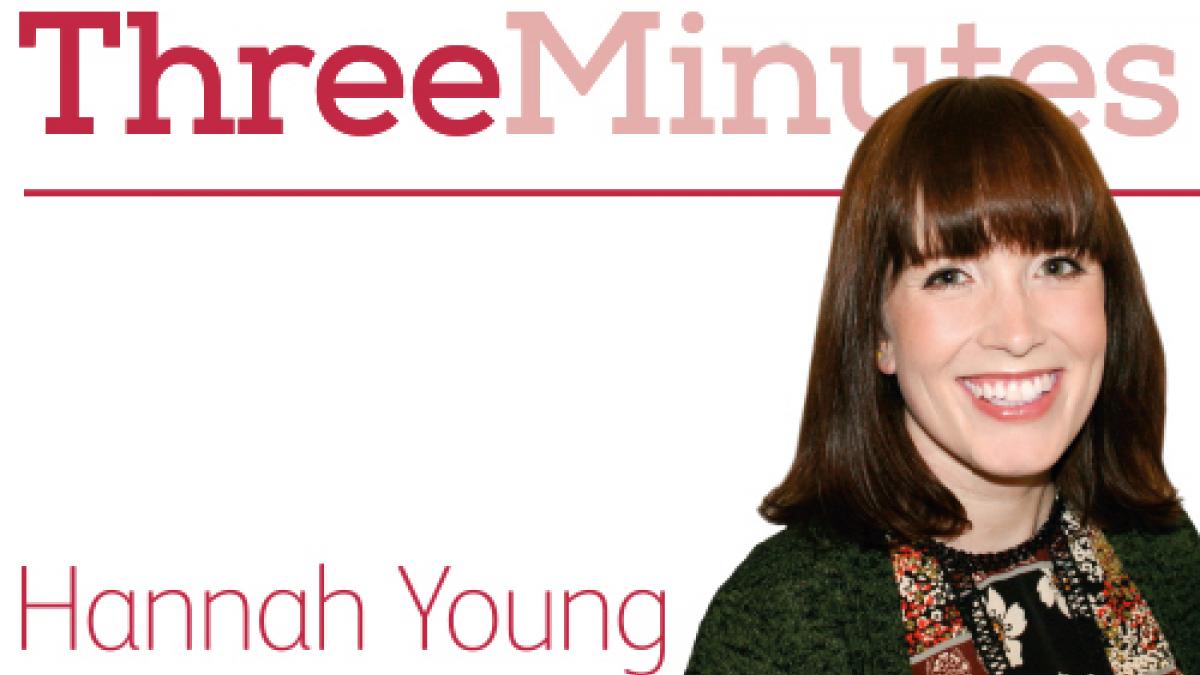For the next three and a half years, Hannah Young will be working on a part-time basis on a National Institute for Health Research fellowship.

‘No day is the same’
How did you become an NIHR fellow?
I started an MSc in 2009 while in a clinical role and my interest in research really grew. As I wanted more experience, I moved into a role researching the effects of exercise during haemodialysis. I gained a lot of research experience and learned from some senior researchers. I decided I wanted to undertake a PhD. Becoming an NIHR fellow involves a lot of hard work and preparation in coming up with a research idea, showing what skills and knowledge you can bring, where you want to be in your career and putting all of that together in your application. There is an intense interview stage where you present your work to a panel of research experts. It was a tough but amazing experience.
What does it mean to you?
This fellowship means I now have protected time to work on my PhD and to take my research in a direction that I am particularly passionate about. It also means that I have access to world-class training that I have been able to tailor to my project needs and career aspirations. I’ll be undertaking some amazing courses and also travelling to the US to present my work, which will mean that I can disseminate my work widely. This project has also opened up a range of opportunities to be supervised and mentored by a range of experts from all different professional backgrounds. The beauty of the research doctoral fellowship is that my PhD is now my day job as all my work time is funded to undertake my clinical research. No day is the same, but usually I can be found supporting patients with their exercise programmes, collecting outcome measures, preparing presentations and posters or trying to write parts of my thesis. From early next year I will be starting the qualitative component of my study.
Tell us about your research
My project is a mixed-methods feasibility study exploring frailty, falls and the role of exercise in patients receiving haemodialysis, and will run part-time over the next three and a half years.
Frailty begins earlier and progresses quicker in these patients. This is due to some factors such as muscle wasting and to unique factors associated with end-stage kidney disease. Outcomes for people who are frail and receiving haemodialysis patients are poor: they are about six times more likely to fall than healthy older adults and more likely to break a bone as a result. Frailty and falls are associated with reduced quality of life, loss of independence and increased use of health services.
Studies into exercise interventions are urgently needed and my project aims to begin to address this gap, by exploring the experiences of patients receiving haemodialysis who are frail and falling.
Any practice implications?
I hope this work will encourage physiotherapists and other clinicians in this field to identify where patient safety and clinical care could be improved. In the longer term, this study will be used to develop and refine a specific intervention to address frailty and falls in the dialysis population, which will then be tested for efficacy. Physiotherapists have a growing role in renal rehabilitation and we will be a key profession in delivering these types of programmes in the NHS in the future.
Should others apply for fellowships?
Definitely! There is a fellowship appropriate to most levels of skill and experience and they offer a really well-defined career path for physiotherapists interested in an academic route, which, I think, is still quite tricky to break into. What really attracted me was the generosity of the award – it covers your current salary, PhD fees, an extensive training programme and travel to conferences as well as the costs associated with the project. For more information, visit www.nihr.ac.uk/training or contact your local research design service www.rds.nihr.ac.uk.
How do you relax?
I have a two-year-old daughter who is a ball of energy so there isn’t much time to relax! I enjoy running and dressmaking, and have managed to create a quite extensive handmade wardrobe. fl
- Hannah Young is a senior physio and NIHR doctoral research fellow at the kidney exercise team, academic unit, Leicester General Hospital
Author
Frontline and Hannah YoungNumber of subscribers: 2




































